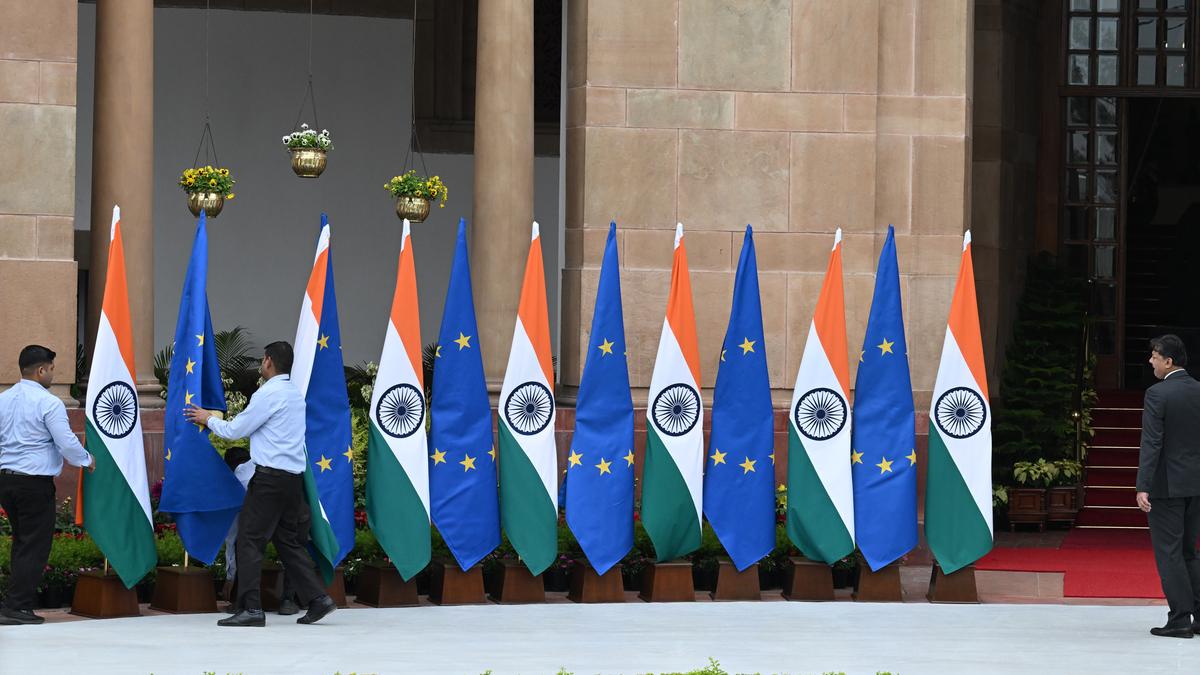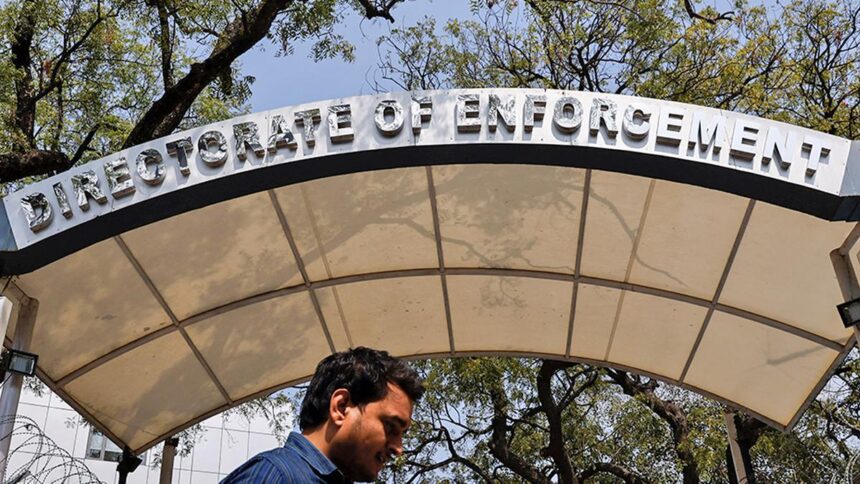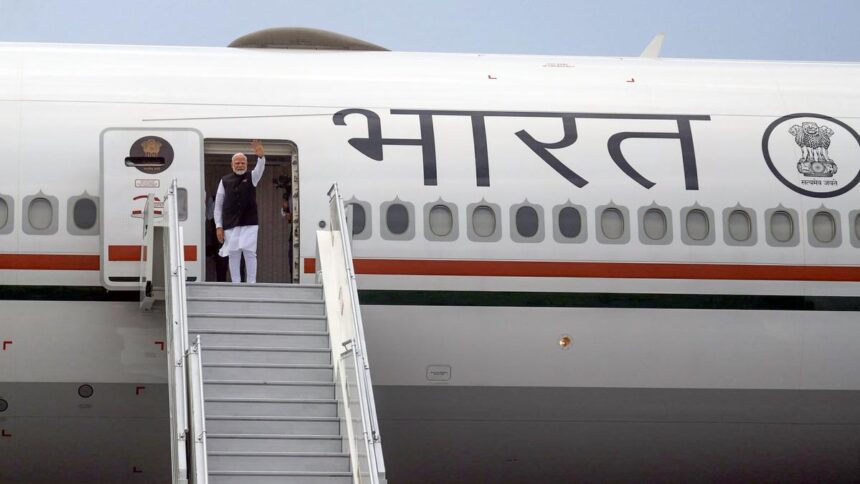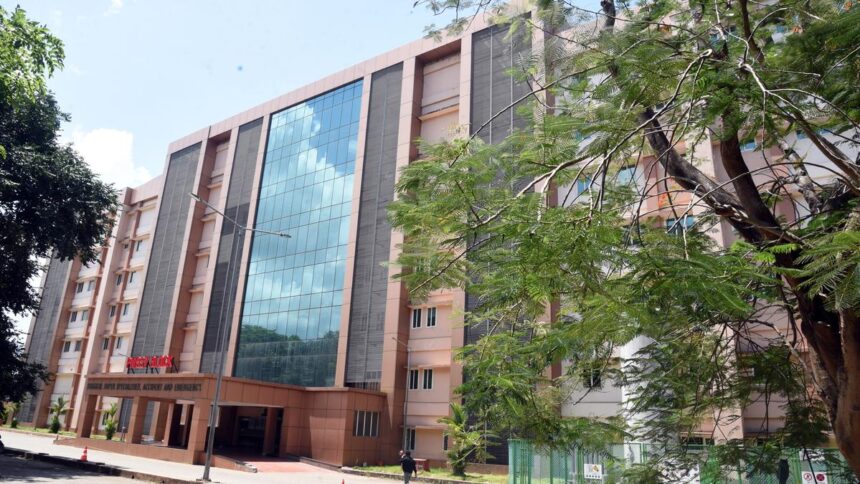
The briefing comes close on the heels of the collapse of trade negotiations with the United States over issues such as opening the market for agricultural commodities, dairy and genetically modified crops, as well as ties with Russia. File.
| Photo Credit: The Hindu
As European Trade Commissioners head to Delhi later this week to fast-track Free Trade Agreement (FTA) talks, the government will brief the parliamentary consultative committee on the discussions, including on contentious issues such as agricultural market access, and non-tariff barriers like the EU’s Carbon Border Adjustment Mechanism (CBAM).
The briefing comes close on the heels of the collapse of trade negotiations with the United States over issues such as opening the market for agricultural commodities, dairy and genetically modified crops, as well as ties with Russia. Officials from the Ministry of External Affairs and the Commerce Ministry are expected to help build political consensus over FTA talks with European countries, which could also demand similar concessions from India.
In the past few months, the government has signed an FTA with the United Kingdom, and the agreement signed with Nordic countries last year is expected to go into force on October 1, which will also be discussed during the briefing, according to sources. However, these deals skirted the issues over agriculture and visas, focusing instead on areas could be agreed on.
According to a notice sent out to members of the Shashi Tharoor-led Committee on External Affairs, the briefing by the government on “India and Europe Relationship: Opportunities and Challenges” will take place on September 10, a day before European Union’s trade commissioner Maros Sefcovic and agriculture commissioner Christophe Hansen arrive in Delhi on September 11 for talks beginning Friday (September 12, 2025).
EU trade negotiators are already in Delhi for preparatory meetings, where both sides are expected to agree on an accelerated plan for talks every month, so as to arrive at an FTA deal by the end of the year. In addition, a 28-member delegation of the Political and Security Committee (PSC) that oversees the EU’s foreign, security and defence policies will travel to Delhi from September 10-14.
“The visit builds on recent key milestones, including the EU College of Commissioners’ visit to India in February, the inaugural EU-India Strategic Dialogue in June, and the upcoming EU-India Summit in early 2026,” the European Union office in India announced on Monday.
While the visits by the trade negotiators and commissioners will focus on the FTA, the PSC is expected to push for India to play a more proactive role in the Ukraine conflict and reduce its processing of Russian oil that finds its way back to European markets.
The visits follow the U.S. decision to impose a total 50% tariff on Indian goods, including a 25% penalty tariff for the purchase of Russian oil, with threats of more “secondary sanctions” from the U.S. over the Ukraine conflict. While the EU has not imposed penalty tariffs on India, it has moved to sanction several Indian companies including Gujarat-based Nayara Energy, partially owned by Russian oil major Rosneft. As a result, Nayara energy’s oil purchases are being refused by shippers and insurers, even as the EU is preparing a 19thpackage of sanctions that will impose penalties on the European buyers of the refined-Russian products sold by Indian refineries.
Sources said the FTA negotiators have cleared about half of the 23-24 chapters in the final EU-India FTA, and they should complete the agreement by the end of 2025, or early next year. According to the sources, both sides have already agreed to leave dairy items out of the scope of the agreement, as well as “some but not all” agricultural items. In its note to members of the consultative committee, the government said it has raised concerns over a number of EU decisions including “Carbon Border Adjustment Mechanism, Deforestation Regulation, Foreign Subsidies rules, Due Diligence requirements, and other emerging regulations” which add to compliance obligations and regulatory costs for Indian exporters. However, EU officials have said publicly that while they will seek to “simplify” the regulatory processes around issues like CBAM, they will not make any special carve-outs for different partners.
(with inputs from T.C.A. Sharad Raghavan)
Published – September 08, 2025 10:59 pm IST






















